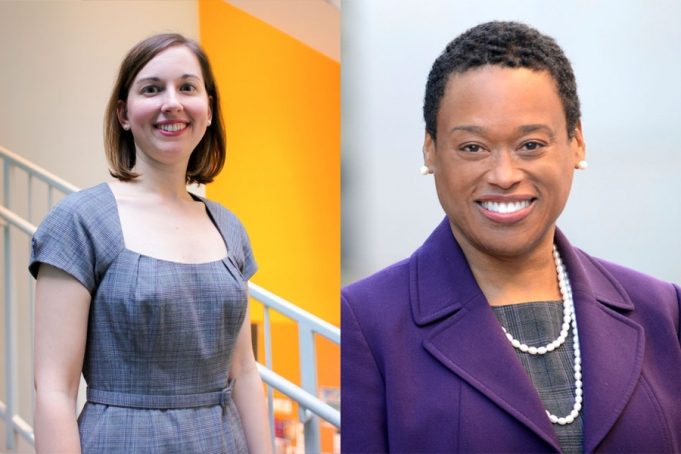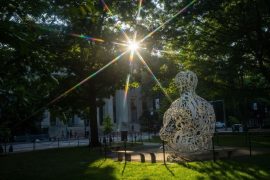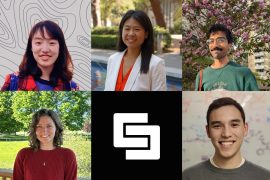3 Questions: The social implications and responsibilities of computing

In helping envision the MIT Schwarzman College of Computing, working group is focusing on ethical and societal questions.
Since February, five working groups have been generating ideas about the form and content of the new MIT Stephen A. Schwarzman College of Computing. That includes the Working Group on Social Implications and Responsibilities of Computing, co-chaired by Melissa Nobles, the Kenan Sahin Dean of the MIT School of Humanities, Arts, and Social Sciences and a professor of political science, and Julie Shah, associate professor in the Department of Aeronautics and Astronautics at MIT and head of the Interactive Robotics Group of the Computer Science and Artificial Intelligence Laboratory. MIT News talked to Shah about the group’s progress and goals to this point.
Q: What are the main objectives of this working group?
A: The goals of the working group are to think about how we can weave social and ethical considerations into the fabric of what the college is doing. That includes our educational mission, our research mission, and how we engage externally. The pull for this right now is enormous. We need to deal with these issues, which are very complex. No single person here at MIT has a full handle on the needs of society. A key challenge is to think about how we close that cross-disciplinary gap, to talk with and engage people in different disciplines.
The members of the working group organized ourselves into two subgroups. One focused on undergraduate and graduate education and curriculum. The other was thinking about research and broader external engagement. We did benchmarking of other centers, departments, and units, and examined how they achieved facets of what we would want to achieve here at MIT.
On both the curricular and research sides, the working group coalesced around the vision of being able to make it a habit of mind and a habit of action, for people to be able to analyze both ethical challenges and societal challenges, and then train our students, as well as us, as researchers, to be equally facile at engineering both technical solutions and policy solutions. In the College of Computing, we need to be the catalyst for bringing together the numerous disciplines that have input into these issues. We have great potential to create collaboration.
And we do have growing public discomfort regarding the implications of computation, technology, AI, and machine learning. There are social implications, including economic inequality, lack of diversity and inclusion, and bias in data and systems. Human rights are at issue, as well as potential impacts on the labor market, and issues around trust, transparency, and accountability. This is an important moment.
Q: What are some of the core ideas the working group has actively discussed?
A: In one sense, a longer-term success would be where we train students in a new way, where they move across disciplines and ask questions alongside the development of their technologies. And in terms of curricular innovation, students need a breadth of knowledge. One option is through stand-alone classes: Students take a class on the ethics of technology or a highly relevant class in the social sciences or humanities. But we’ve also looked at models of embedded curriculum, getting students to engage these considerations as they’re studying and developing technology.
On the research side, you have a similar challenge. In regard to both education and research, one takeaway that’s come up over and over in conversation, internally and externally, is that grappling with the social issues is not something that can be done through a sort of service model, where you have one discipline in the service of training computing students and researchers about doing this. The success of this is contingent on learning how to speak the same language across disciplines and creating new educational and research paths together. This needs to be set up as a deep collaboration and a live field of study.
Beyond computer science, we need to understand and leverage the rigor of other disciplines. Each of these different disciplines has different tools, methods, and techniques, and ways of following questions and conducting analysis.
Q: What is the path forward from here?
A: We had extraordinarily strong engagement from the working group, with a lot of enthusiasm and ideas, a lot of thinking through the pros and cons of different mechanisms — everything from students thinking about how to optimize their course loads while wanting to integrate ethical considerations into their research, to faculty who want to be provided the right opportunities to engage in collaboration.
What is special about this effort is that it’s not something where the working group is done, we file our report, and that’s the end. It’s about continual engagement with the community here at MIT, about fostering collaboration. Members of the working group are continually looking for further input and ideas, to build community, and to build cross-disciplinary collaboration. This is a starting point, a set of options and ideas. But finding the right path through needs to be a larger collaborative effort.


